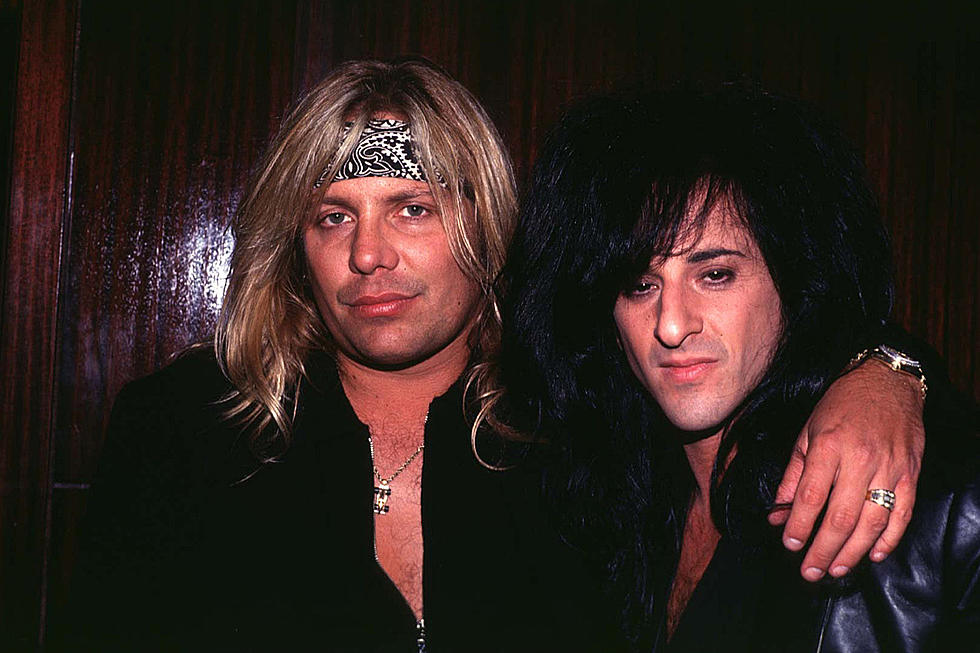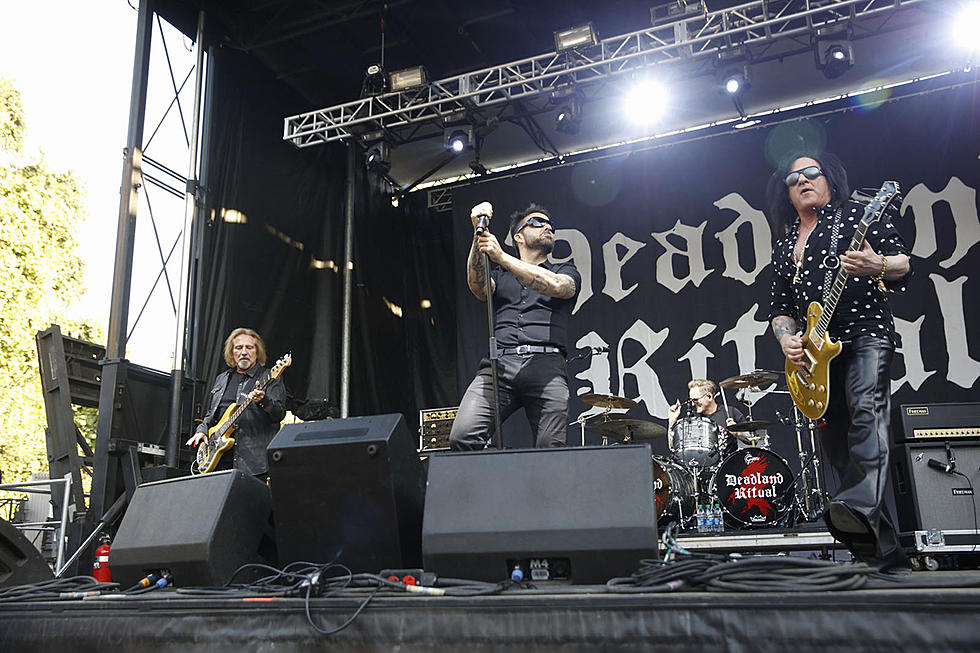
Why Steve Stevens Left Vince Neil’s Band: Exclusive Interview
Billy Idol guitarist Steve Stevens says playing on Vince Neil's first post-Motley Crue record was "a blast," but the grunge revolution caused him to reevaluate the gig.
Stevens enjoyed the spotlight in the mid-'80s, playing on Idol's double-platinum Rebel Yell and its platinum follow-up Whiplash Smile. He also guested on Michael Jackson's "Dirty Diana" and won a Grammy for his performance on 1986's "Top Gun Anthem." The good times kept rolling when he joined Neil's solo band.
"I had a blast. It was a party. You know, it was everything you'd expect Vince Neil in 1990-91 to be," Stevens tells UCR. The resulting album, 1993's Exposed, also served as a departure from the "economical" guitar solos he had tracked on Idol songs. "So [on a] Billy Idol record, songs typically have eight bars for the guitar solo," he explains.
"We're in the studio working on Vince's thing. It's eight bars. 'Make it longer.' Oh, OK. Sixteen bars for guitars. 'No, make it longer.' Thirty-two bars for guitars, 64 bars for the guitar solo. Which was great. 'Make it heavier, louder, faster!'"
Listen to Vince Neil's 'Sister of Pain' Featuring Steve Stevens
While Stevens was feeling more musical freedom on Exposed, the music industry seemed laser-focused on the grunge movement that was taking the rock world by storm. The change was immediately evident following a successful tour opening for Van Halen. "Being out on the road with Van Halen was just fantastic," Stevens says. "Didn't matter what was going on; Van Halen are big. They supersede all that stuff. They're Van Halen. But immediately after that tour, it became apparent that the tide had changed, and all of the kind of Seattle sound was now becoming the next thing."
The guitarist was not particularly surprised or bothered by the grunge revolution. Instead, he took it as a cue to try something new. "You know, things are cyclical anyway. And it enabled me to go do [something different]," he says. "I said, 'OK, I'm gonna do a flamenco record, return to, really, my roots of where I started originally on the guitar.' So all that stuff, it's all healthy, and music has to evolve and change."
Stevens released his sophomore solo album, Flamenco a Go-Go, in 2000, recording the mostly instrumental LP in his home studio with a Spanish guitar. The album also features other atypical instruments for a flamenco record, including electric guitars, drums and bass loops. Stevens' love for flamenco guitar persists to this day, and in January, he collaborated with the String Revolution quartet on a flamenco rendition of Ozzy Osbourne's "Crazy Train."
Other bands, such as Motley Crue, also saw the grunge movement as an opportunity to try something new. "I welcomed that with the biggest open arms on the planet," Crue drummer Tommy Lee told Apple Music in 2020. "I was like, 'Yes, somebody's fucking stirring it up.' Everything was just sounding the same." The band explored more serious sounds and topics on its self-titled 1994 album with new singer John Corabi. Although it wasn't as commercially successful as earlier records, Motley Crue is still considered a creative highlight by many fans and certain band members.
Stevens and Idol will hit the road this spring and summer for a run of dates in the U.S. and Europe, including a U.K. tour with the Go-Go's in June. The guitarist also tells UCR that Idol has finished a follow-up EP to last year's The Roadside, which he predicts will come out this summer. "It's heavy," he promises. "You know, we wanted it to be personal and intimate on the first go-round, but this one is big and heavy and the other side of the coin."
Motley Crue Lineup Changes: A Complete Guide
More From 99.1 The Whale









